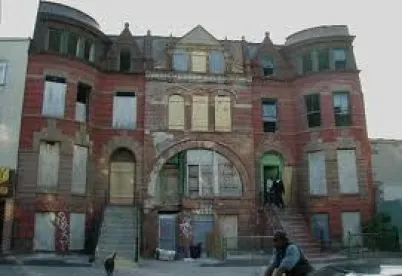A municipal ordinance imposing registration and maintenance obligations upon owners and secured lenders of buildings that are vacant or undergoing foreclosure was preempted by the Massachusetts remediation and clean-up statute known as Chapter 21E, according to the top Massachusetts court.
The City of Springfield enacted an ordinance in 2011 in an effort to address the increasing number of properties left vacant as a result of foreclosures. The ordinance required owners, which, as described below, included some secured lenders, of buildings that were vacant or undergoing foreclosure to register with the city and meet certain maintenance requirements. If an owner failed to do so, the building commissioner could issue an order for compliance and take further enforcement actions.
The ordinance defined “owner” to include any mortgagee which: (1) had taken possession of the property, (2) had commenced a foreclosure action, or (3) has authority, by virtue of a mortgage agreement, to enter a property to make repairs that the mortgagor had failed to make. Thus, a mortgagee could fall within the definition of “owner” (and thereby be subject to applicable registration and maintenance requirements) even if the subject property was not undergoing foreclosure.
A group of banks holding mortgage notes challenged the ordinance as preempted by the Massachusetts foreclosure statute (M.G.L. c. 244) and Chapter 21E. On appeal, the U.S. Court of Appeals for the First Circuit certified the preemption question to the Massachusetts Supreme Judicial Court (SJC).
In its decision in Easthampton Sav. Bank v. City of Springfield, 470 Mass. 284 (2014), the SJC concluded that the ordinance was not preempted by M.G.L. c. 244 because the ordinance had no impact on the statutory procedures for foreclosing the equity of redemption in a mortgage. However, the SJC concluded that the ordinance was in direct conflict with the secured lender exemption of Chapter 21E, the Massachusetts Oil and Hazardous Material Release Prevention Act, M.G.L. c. 21E, and was therefore preempted. Chapter 21E exempts a secured lender from owner liability for releases of hazardous materials that first begin to occur prior to the secured lender acquiring ownership or possession of the property. The plaintiffs argued, and the SJC agreed, that the ordinance exposed mortgagees to liability under Chapter 21E if the mortgagees entered a property to comply with the ordinance’s maintenance mandate during or after which a release of hazardous material occurred. Because the ordinance required mortgagees not yet in possession of a property to enter and assume possession, the SJC determined that it conflicted with Chapter 21E’s legislative policy of exempting from liability secured lenders not yet in possession of properties.
Although the ordinance specified that its terms did not apply to owners exempt under Massachusetts General Laws (such as Chapter 21E, presumably), the SJC was unpersuaded. A municipal ordinance cannot exempt a secured lender from the terms of an ordinance if the municipality has no regulatory power to include a secured lender in the first place.




 />i
/>i

